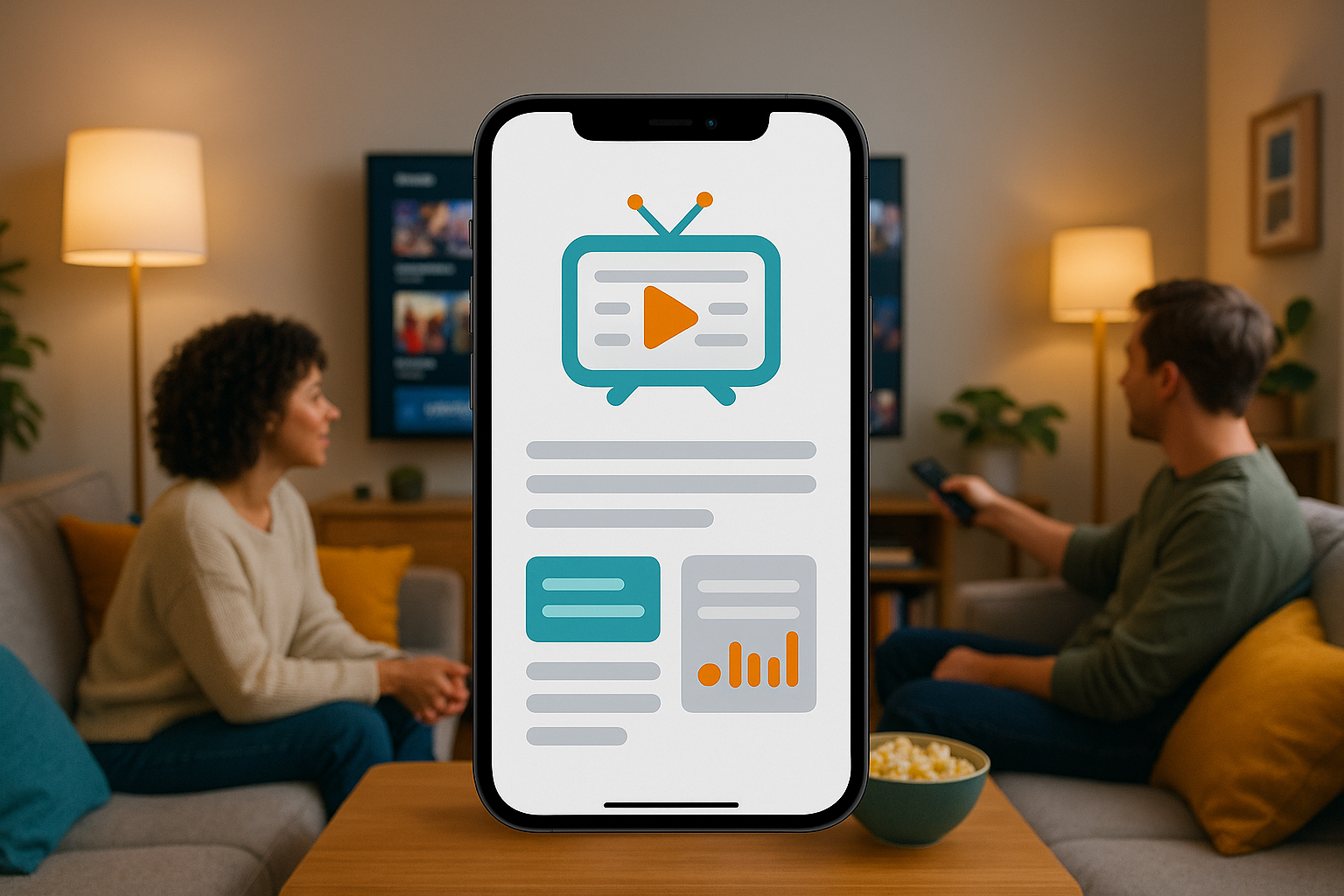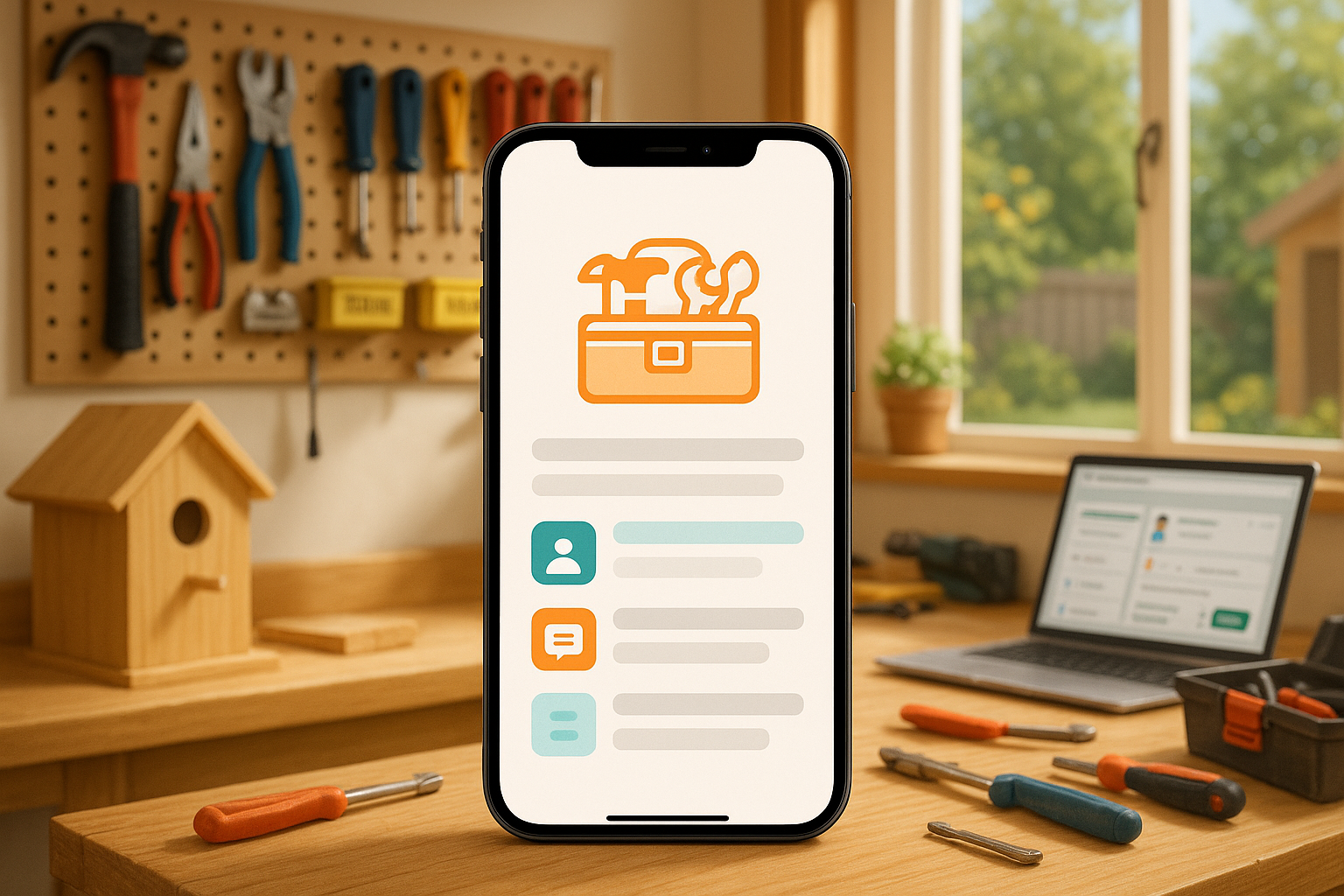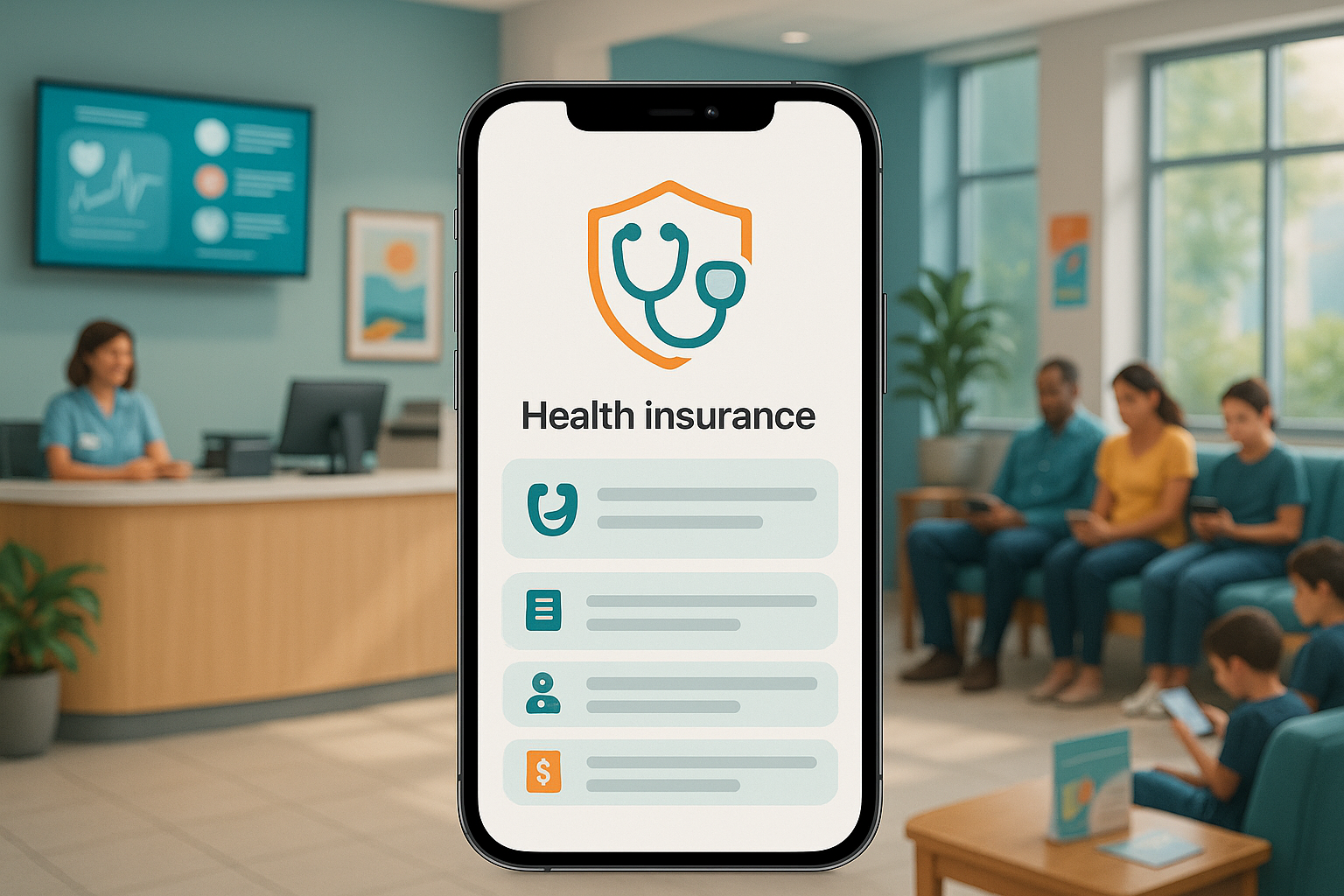The Challenge of a New Television Frontier: An Introduction to HbbTV App Development
In the evolving landscape of digital media, content providers are constantly seeking innovative ways to engage their audience. Hybrid Broadcast Broadband TV (HbbTV) represents a significant leap forward, merging the worlds of traditional television broadcasting with the interactive potential of the internet. However, developing a compelling HbbTV application is fraught with unique challenges that can stifle even experienced development teams. From navigating strict technical specifications and ensuring compatibility across a fragmented market of Smart TVs to designing an intuitive user experience for a remote control, the path to a successful HbbTV app is complex.
This article serves as a comprehensive guide to HbbTV app development. We will explore what an HbbTV app is, delve into the significant hurdles of in-house development, and outline the diverse types of applications you can create. We’ll also discuss cost considerations and introduce the top development companies that can help you succeed.
As a leading US AI-powered mobile app development firm with over 20 years of experience, we at MetaCTO have guided countless projects from concept to launch and beyond. We understand that modern viewing experiences are not confined to the TV screen alone. A crucial, and often overlooked, aspect of HbbTV is its ability to integrate with mobile devices. Our expertise in creating seamless mobile apps makes us uniquely positioned to help you build not just an HbbTV service, but a cohesive, cross-platform ecosystem that captivates and retains your audience.
What is an HbbTV App?
HbbTV, or Hybrid Broadcast Broadband TV, is a global initiative and technical standard designed to harmonize the delivery of entertainment services across connected TVs, set-top boxes, and even multiscreen devices. At its core, the HbbTV specification aims to enrich the traditional, linear television experience by overlaying it with interactive services delivered via a broadband internet connection. It enables professional video and audio content providers, primarily broadcasters, to offer a new layer of engagement directly on the television screen.
For the viewer, the experience is seamless. While watching a program, a small, unobtrusive “call-to-action” graphic might appear on screen, often prompted by pressing the red button on the remote. This action launches a “broadcast-related application” that is resident in the TV. This app, built using standard web technologies like HTML5 and JavaScript, runs directly on the TV, creating an integrated experience rather than forcing the viewer to switch to a separate input or device.
The purpose of these applications is to improve the video user experience by enabling innovative, interactive services. An HbbTV app can serve a multitude of functions that enhance the primary broadcast content. For example:
- An app might provide extra information on a sports program, displaying real-time player statistics or alternate camera angles.
- It could launch a detailed program guide with trailers and the option to switch channels or set reminders.
- It might present a menu with access to a library of additional video programming, such as a broadcaster’s video-on-demand (VOD) catalog.
- It can even facilitate real-time interaction, such as allowing viewers to participate in live polls, quizzes, or votes related to the show they are watching.
Ultimately, HbbTV empowers broadcasters and other content providers to deliver a wide range of services that go far beyond passive viewing, turning the television into a more dynamic and engaging platform.
Reasons It Is Difficult to Develop an HbbTV App In-House
While HbbTV leverages familiar web technologies, building a robust, compliant, and user-friendly application in-house presents a formidable set of challenges. These difficulties span technical requirements, design principles, performance optimization, and rigorous testing, demanding a specialized skill set that few teams possess.
Technical Expertise and Performance Optimization
At first glance, the requirement for HTML5 and JavaScript proficiency seems straightforward. However, the reality is far more demanding. HbbTV app development takes place in a highly constrained environment: the limited hardware capabilities of TV devices. Unlike modern computers or smartphones, most Smart TV systems have modest processing power and memory.
This limitation means that developers must write exceptionally efficient, lightweight code. A bloated or poorly optimized application will result in a sluggish, unresponsive experience, causing user frustration and abandonment. Performance optimization becomes a central pillar of development. This involves:
- Minimizing Buffering and Loading Times: Viewers expect instant gratification. Long loading screens or buffering during content playback are unacceptable. This requires developers to implement efficient content delivery strategies and write code that executes quickly.
- Straining Limited Resources: Every line of code must be scrutinized for its impact on the TV’s processor and memory. A smooth, fluid experience depends on an application that can deliver its features without overwhelming the system.
Fragmentation and Compatibility Hell
The Smart TV market is notoriously fragmented. Dozens of brands, hundreds of models, and multiple underlying operating systems (like Tizen, webOS, and various flavors of Android TV) create a complex matrix of potential compatibility issues. An app that works perfectly on one manufacturer’s 2023 model might fail completely on another’s or even on a 2022 model from the same brand.
To overcome this, a development team must engage in rigorous, comprehensive testing. This isn’t just a final-stage quality check; it’s an ongoing process that involves:
- Testing the app across a wide range of TV brands, models, and operating systems to guarantee compatibility.
- Identifying and addressing performance bottlenecks and rendering quirks specific to each platform.
- Ensuring a consistent, high-quality experience for all users, regardless of their television set.
Unique User Experience (UX) and Design Philosophy
Designing for HbbTV is fundamentally different from traditional web or mobile app design. The context of use—a “10-foot experience” where users are sitting on a couch interacting via a simple remote control—dictates a unique set of design principles.
- Remote Control Navigation: The primary input device is a remote with a limited set of buttons (D-pad, OK, Back, Red/Green/Yellow/Blue). Navigation must be meticulously crafted to be simple, intuitive, and achievable with minimal button presses. Complex menus or interfaces that require precise pointer control are non-starters.
- Minimizing Cognitive Load: The interface must be exceptionally clear and readable from a distance. The design philosophy centers on presenting information and options in a way that doesn’t require intense concentration. The goal is to provide additional value without overwhelming or distracting from the primary viewing experience.
- Responsive Design for TVs: Developers must employ a nuanced approach to responsive design that accounts for the vast differences in screen sizes and resolutions of modern Smart TVs, ensuring that layouts and text are always legible and well-proportioned.
Security, Compliance, and Standardization
HbbTV is a standardized platform, and adherence to these standards is not optional.
- HbbTV Association Specifications: Developers must adhere to the official specifications, which outline both mandatory and optional features. This includes implementing required APIs and maintaining compatibility with the latest versions of the standard to ensure the app is certified and functions correctly.
- Content and Data Protection: Protecting user data and premium content is paramount. This requires the proper implementation of secure communication protocols (like HTTPS) and Digital Rights Management (DRM) technologies to prevent piracy and ensure the app meets industry security requirements.
Integrating HbbTV with Mobile Apps
A truly modern HbbTV strategy extends beyond the TV screen. The standard allows users to interact with HbbTV features using a companion app on their smartphone. This opens up incredible possibilities for a richer, second-screen experience, such as using the phone for text entry in a search bar, participating in social engagement, or accessing extended program details.
However, building this bridge is a significant technical challenge. It requires deep expertise in both HbbTV protocols and native mobile app development. The two systems must communicate seamlessly in real-time, ensuring a synchronized and intuitive user journey. This is where a specialized agency like ours excels. With a proven track record in building complex mobile applications, we understand how to architect the robust backend services and mobile-side clients needed to create a cohesive HbbTV and mobile ecosystem. Attempting this integration without seasoned mobile experts often leads to a clunky, unreliable experience that fails to deliver on its promise.
Different Types of HbbTV Applications
The flexibility of the HbbTV standard allows for an impressive variety of applications and use cases, transforming television into a platform for information, entertainment, commerce, and public services. These can be broadly categorized based on their function.
Enhanced TV and Interactive Content
This is perhaps the most common and recognizable category of HbbTV apps. They are designed to run alongside a live broadcast, enhancing it with interactive elements.
- Live Broadcast Enhancement: Providing supplementary information like real-time sports statistics, actor biographies for a film, or recipes for a cooking show.
- Interactive Elements: Engaging viewers directly with live polls, quizzes, and voting mechanisms that can influence or comment on the broadcast content.
- Additional Content Access: Offering a menu to view extra video programming, behind-the-scenes footage, or related content without leaving the current channel.
- 360° Live Streaming: For special events, providing immersive 360-degree video streams that viewers can explore.
Video-on-Demand (VOD) and Catch-up Services
HbbTV provides a powerful channel for broadcasters and content providers to deliver their video libraries directly through the broadcast channel.
- Catch-up TV / Replay TV: Allowing viewers to easily watch programs they missed from the past few days.
- Start-over TV: A feature that lets a viewer who tunes in late to a live program restart it from the beginning.
- VOD Libraries (HbbTV VOD app): Full-fledged video-on-demand catalogues, similar to standalone streaming apps.
- Push VOD: A technology where content is pre-loaded to a viewer’s set-top box, enabling instant, buffer-free playback.
- TVOD-Previews: Offering previews for transactional video-on-demand content.
Information and Utility Services
HbbTV can serve as a portal for a wide range of useful information services, appropriate for consumption on a large TV display.
- Program Guides (EPG): Highly detailed and visually rich electronic program guides.
- News, Sport, and Weather: Dedicated portals for up-to-the-minute information.
- Recommendation Systems: Apps that suggest content to viewers based on their watch history.
- Universal Launchers: A central hub or portal that provides access to various apps and services from a broadcaster.
Commercial and Public Service Applications
The platform also supports transactional and informational services that extend beyond pure entertainment.
- Interactive & Targeted Advertising: Moving beyond traditional TV spots to ads that viewers can interact with, or ads that are targeted based on viewing habits.
- E-Commerce: Enabling direct purchases of products featured or advertised in a program.
- Public Services: Applications for e-government, health information, educational content, and even early warning systems for civil emergencies.
- Games: Simple games that can be played with a remote control.
Cost Estimate for Developing an HbbTV App
One of the most compelling business arguments for HbbTV is its cost-effectiveness, especially when compared to the alternative of building a full, native Smart TV app ecosystem.
The primary reason for this is that launching an HbbTV service is often quicker and more cost-effective. Developing separate native applications for Samsung’s Tizen, LG’s webOS, Android TV, and other platforms is a massive undertaking. Each platform requires a distinct codebase, a separate development team with specialized skills, and an independent testing and submission process. This multiplies costs and development timelines significantly.
HbbTV, by contrast, is built on a foundation of open web standards—HTML5, JavaScript, and CSS. This offers several key advantages:
- A Single Codebase: A single HbbTV application can, in principle, run across all HbbTV-compliant devices, regardless of the manufacturer or underlying operating system. This dramatically reduces development and maintenance overhead.
- Leveraging Web Talent: It is generally easier and more affordable to find skilled web developers than it is to find experts in niche proprietary TV operating systems.
- Faster Time-to-Market: The streamlined development process allows broadcasters to launch new interactive services much more quickly.
While it is impossible to give a precise dollar figure without a detailed project scope, the cost savings are realized by avoiding the redundant work inherent in multi-platform native app development. The investment is focused on creating one high-quality, compliant web-based application and testing it thoroughly, rather than building and maintaining three or four separate apps. Partnering with an experienced agency can further optimize costs by leveraging pre-built components and a deep understanding of the compliance and testing process, avoiding costly mistakes and delays.
Top HbbTV App Development Companies
Choosing the right development partner is critical to navigating the complexities of HbbTV and ensuring a successful launch. Here are some of the top companies in the space.
1. MetaCTO
As a premier AI-powered mobile app development agency in the United States, we at MetaCTO bring a unique and vital perspective to the HbbTV landscape. With over two decades of experience and more than 120 successful projects launched, our expertise lies in building sophisticated, scalable, and user-centric digital products.
What truly sets us apart in the HbbTV space is our profound expertise in mobile integration. As the HbbTV standard increasingly incorporates second-screen functionality, the ability to create a flawless connection between the TV application and a user’s smartphone is no longer a luxury—it’s a necessity for a modern, engaging experience. We are experts at architecting the complex backend and mobile client solutions required for this seamless synchronization.
Our development process is designed to de-risk your investment and accelerate your time-to-market:
- Validate: We help you turn your idea into a rapid MVP, allowing you to test the market and gather real feedback quickly.
- Build: We handle the entire end-to-end process, from design and engineering to launch, ensuring a market-ready product that delivers a smooth experience.
- Grow & Monetize: We use data-driven strategies to optimize user acquisition, engagement, and retention, and we help you implement the most effective monetization strategies for your app.
For any organization looking to leverage the full power of HbbTV, including its crucial mobile dimension, partnering with a mobile-first expert like MetaCTO is the most strategic path forward.
2. Sofia Digital
Sofia Digital is a renowned pioneer in the HbbTV field, with an award-winning technology platform that powers transmissions for major broadcasters across Europe and Asia. Millions of viewers interact daily with TV services built on their Sofia Backstage® HbbTV Platform.
As a member of the HbbTV Association and one of its official registered test centers, Sofia Digital possesses deep, authoritative knowledge of the standard. They offer clients a range of solutions, from ready-made application templates—including red-button launchers, news services, enhanced EPGs, and VOD catalogs—to fully custom application development. Their extensive experience and library of pre-developed components make them a strong choice for broadcasters looking for a proven, end-to-end HbbTV solution.
Conclusion: Building the Future of Interactive Television
HbbTV offers a powerful pathway for broadcasters and content providers to deepen audience engagement and unlock new revenue streams. As we’ve explored, it enables a rich variety of interactive applications, from enhanced live broadcasts and VOD catalogs to news services and e-commerce. Furthermore, it often presents a more cost-effective and faster route to market than developing a suite of native Smart TV apps.
However, the journey is not without its challenges. Successful HbbTV app development demands specialized technical skills to create lightweight, performant code. It requires a deep understanding of UX design for the “10-foot experience,” rigorous testing across a fragmented device market, and strict adherence to HbbTV standards. These complexities make in-house development a significant hurdle for many organizations.
Choosing the right development partner is paramount. An expert agency can provide the technical knowledge, design experience, and strategic guidance needed to navigate these challenges effectively. At MetaCTO, we combine our extensive experience in mobile and AI-powered app development with a strategic understanding of the HbbTV ecosystem. We are uniquely equipped to build not just a standalone HbbTV app, but a cohesive, cross-platform experience that integrates seamlessly with mobile devices, creating a truly modern and engaging product for your audience.
If you’re ready to explore how HbbTV can transform your content strategy, talk with an HbbTV expert at MetaCTO today to learn how we can help integrate these powerful interactive capabilities into your product.






